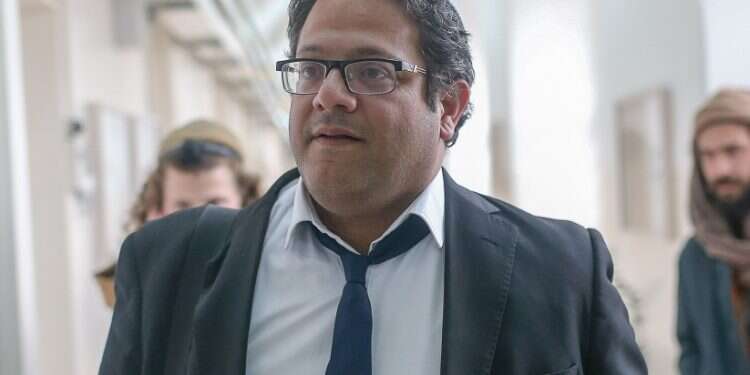In an affirmation of freedom of expression, a Jerusalem Magistrates' Court judge ruled on Monday that it is legal for Jews on the Temple Mount to say "Am Israel chai," a Hebrew expression meaning "the people of Israel lives."
"There is nothing illegal about the phrase 'Am Israel chai' and it is not a crime," Judge Mordechai Burstein ruled. His verdict partially accepts a complaint submitted by Itamar Ben-Gvir, a right-wing activist and lawyer, against the Israel Police and the Islamic authorities charged with custodianship over the religious site. The police must pay 6,000 shekels ($1,700) in compensation for illegally detaining Ben-Gvir, in addition to court expenses and attorney fees amounting to 2,000 shekels ($570).
The incident began after Ben-Gvir entered the Temple Mount complex for a tour during the intermediary days of the Sukkot holiday in September 2015. Employees of the Islamic Waqf, the Muslim endowment charged with administering Al-Aqsa mosque, began following and yelling at him. After he shouted back "Am Israel chai," a police officer detained Ben-Gvir under the pretext that he broke the law. After being detained for three hours, Ben-Gvir sued both the waqf and police for discrimination on entry to the religious site and illegal detention by an officer.
The court ruled against the waqf in February 2016, which did not file a statement in defense, ordering it to pay Ben-Gvir a sum of 56,000 shekels ($16,000).
"A review of the plaintiff's conduct shows there was no reason to detain him and that the detention was illegal," Burstein ruled. Furthermore, "the plaintiff was entitled to complain to the police against waqf employees. During the tour and afterward, calls of 'Allahu akbar' [God is the greatest] were heard and there is nothing wrong with the statement 'Am Israel chai' and this is not a crime."
The judge also noted that Ben-Gvir was not warned ahead of being detained. Based on video footage of the incident, Burstein said the detention was especially unfair as "one of the female Muslim visitors cursed a Jew in the Arabic language and told him, 'Get out of here, you dog.' And when a Jew asked for her information, the police officers refused to provide her details, and did not even detain the woman."
Burtstein rejected the claim of discrimination, however, even though Ben-Gvir was made to wait at the entrance to the Temple Mount in a separate line for Jews and tourists. Although video footage confirms that the entrance of Jews to the Temple Mount complex was indeed barred for an extended period and that a security officer manning the station inappropriately blocked the inspection area, Burstein said there was no proof of arbitrariness in police conduct or mistreating Jews trying to visit the site.
"The court gave a present to the Jewish people ahead of the state's 70th Independence Day," said Ben-Gvir. "I am certain, however, that it was wrong to reject my claim concerning the discrimination at the entrance to the Temple Mount, especially after the judge watched the video recording the police's conduct. I'm also certain that the time has come for the courts to rule that Jews can pray on the Temple Mount, just as Muslims pray there. There cannot be wrongful discrimination, particularly not in the most important place to the Jewish people."
Israeli security forces limit the visitation of non-Muslims to the site for security and diplomatic reasons. Through international treaties, the Temple Mount is legally administered under the auspices of Jordanian King Abdullah II, represented by the waqf.




